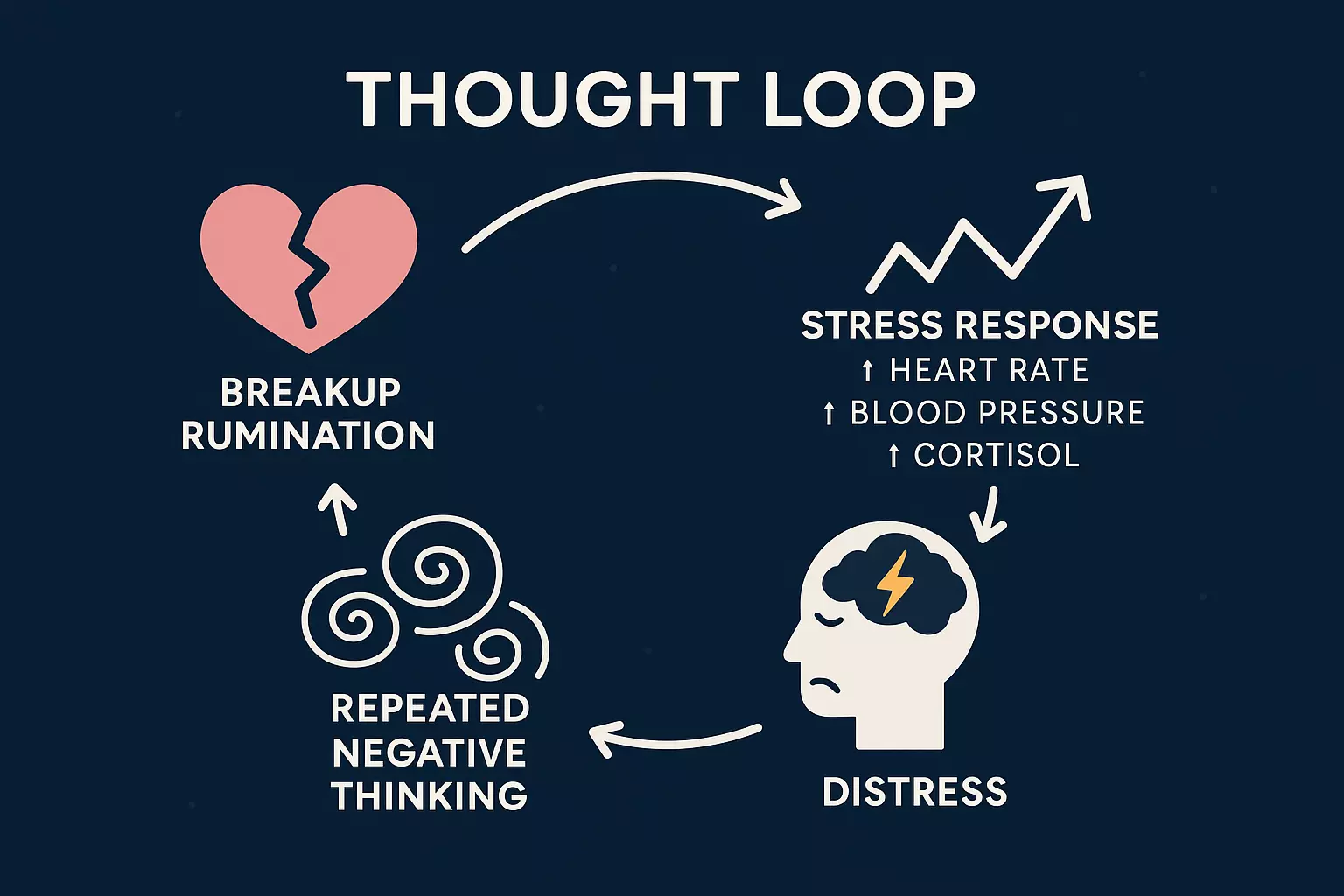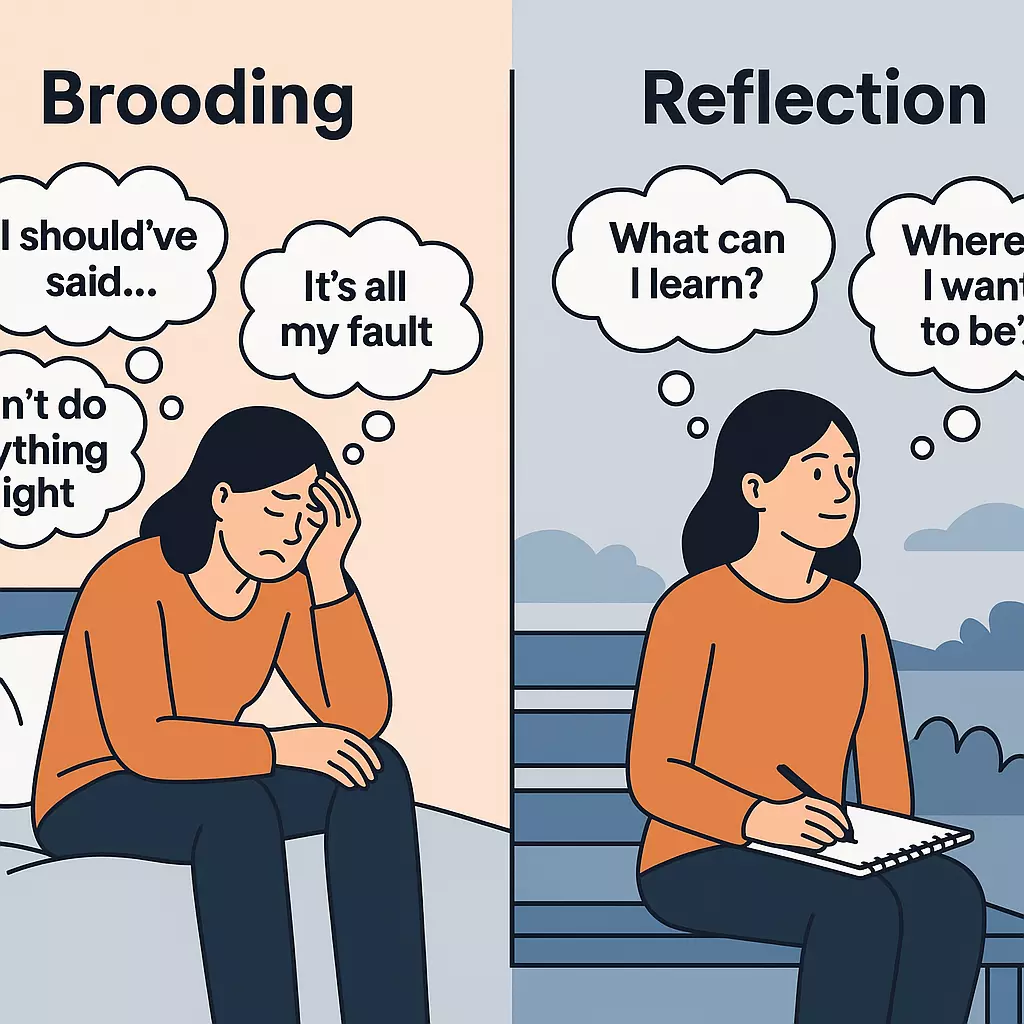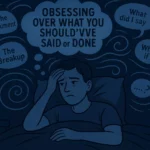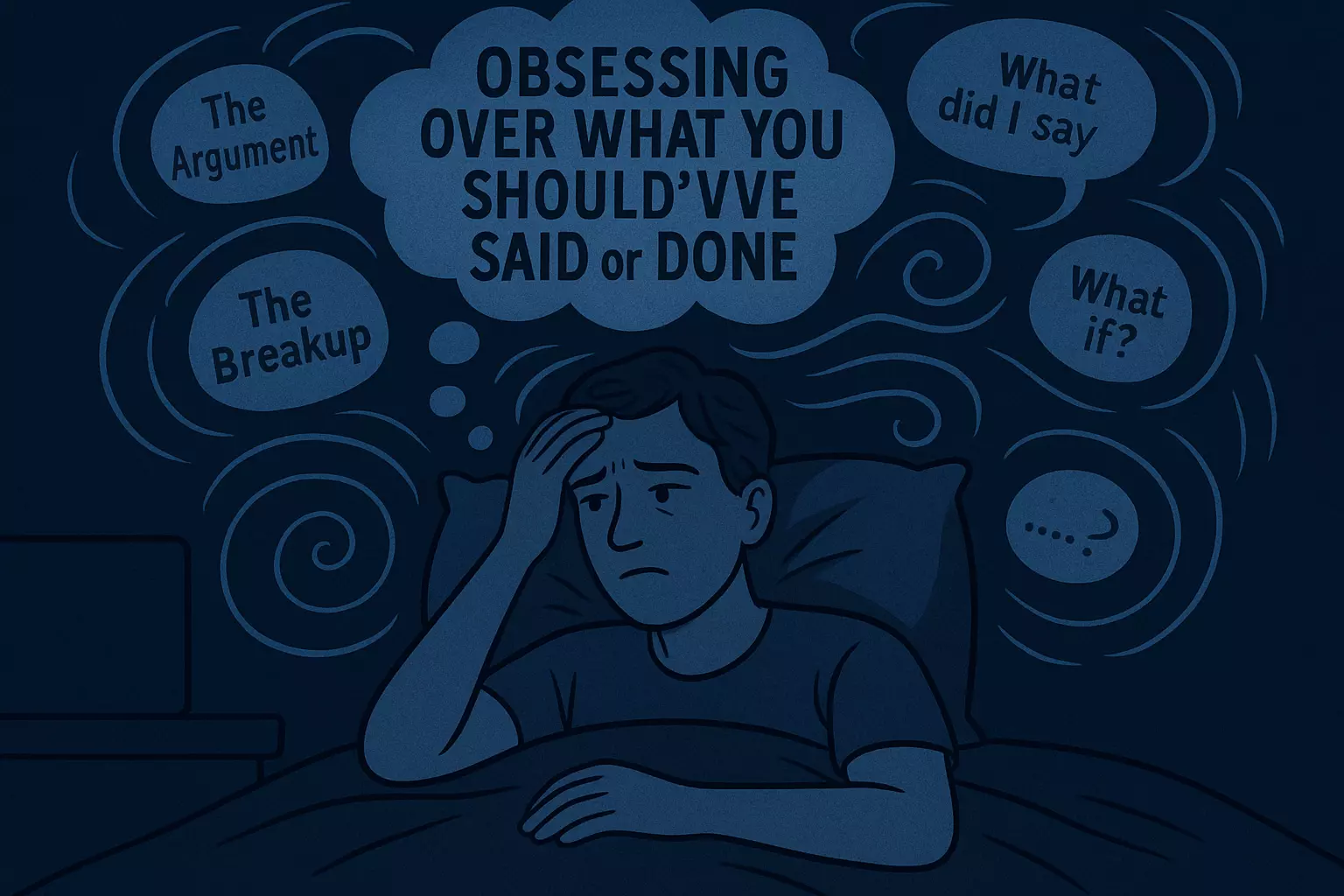Table of Contents
It’s 2:47 a.m. again.
You’re trapped in mental rewind, replaying that moment of heartbreak, thinking, If only I said… or If only I did…. This is breakup rumination: a loop of endlessly reviewing past words and what-ifs. But hi, you’re not broken—you’re human.
Why Did I Turn Into This Overthinker?
Breakup rumination is a form of ruminative brooding, where you passively dwell on your perceived mistakes. Science shows it drains emotional recovery—we’re not just being dramatic:
A study by Verhallen et al. tracked people for 30 weeks post-breakup. Those with high rumination (and neuroticism) fell into slow-recovery or chronic distress groups—while those with better cognitive control healed faster.
When Thinking About It Keeps You Stuck—Forever
The problem? Your mind keeps stress active long after the breakup. That’s the Perseverative Cognition Hypothesis:
Repeated negative thinking keeps your stress response on. Research shows rumination can elevate heart rate, blood pressure, and cortisol—turning mental pain into physical wear and tear.

Sleep Isn’t Safe from This Loop
A study from Vietnam found that breakup distress directly led to sleep problems, and rumination acted as a bridge—meaning more rumination = worse sleep.
So those 3 a.m. replays aren’t just emotional—they’re robbing your rest.

Why Breakups Hurt So Much (Science of Heartbreak & Healing)
Let’s examine breakups in: Biology of love & loss, Attachment styles, Rejection psychology, Closure, Rumination, Grief
Tap here to read more →Brooding vs. Reflection: Are All Thoughts Equally Toxic?
Not all rumination is equal.
Brooding is passive and self-critical: “I should’ve said…”—the kind that makes you stuck.
Reflection is active and forward-looking: “What can I learn?”—a route toward healing.
Studies show reflection supports problem-solving and post-traumatic growth, while brooding prolongs distress.

The Real You Isn’t the Rumination
If you feel trapped in the loop, remember: this isn’t weakness. Your brain is trying to solve something it can’t fix. But you can change the pattern.
How to Gently Interrupt the Loop
- Notice the thought: “If only I had said…”
- Pause—stop the automatic guilt
- Shift inward: “What can this teach me?”
- Choose reflection, not brooding
- Be kind to yourself; healing needs compassion and rest
The breakup already hurt. You don’t have to keep hurting yourself for it.
The relationship ended. But your story didn’t.
FAQ
Q1. What is breakup rumination?
Breakup rumination is the mental habit of obsessively replaying past conversations or imagined scenarios after a breakup, often focused on what you should have said or done differently.
Q2. Is breakup rumination harmful?
Yes. Scientific studies link rumination to prolonged emotional distress, sleep disturbances, and increased physical stress responses like elevated cortisol.
Q3. How do I stop ruminating after a breakup?
Shift from brooding to reflection. Ask what the experience can teach you rather than what you should’ve changed. Mindfulness, journaling, and therapy can help disrupt the loop.
Q4. What’s the difference between brooding and reflection?
Brooding is passive and self-critical, focused on regret. Reflection is active and growth-oriented, focusing on lessons and future choices.
Scientific Sources
-
Verhallen et al. (2025): Depressive symptom trajectory following romantic relationship breakup and effects of rumination, neuroticism, and cognitive control
Key Finding: Post-breakup brooding rumination was linked to slower emotional recovery and chronic distress, while reflective rumination correlated with healthier adaptation.
Why Relevant: Explains how the obsessive thought loop after breakups can prolong suffering, and how reflection may support healing.
https://www.researchgate.net/publication/357160345_Depressive_symptom_trajectory_following_romantic_relationship_breakup_and_effects_of_rumination_neuroticism_and_cognitive_control -
Namibian Studies Journal (2023): The Mediating Role Of Rumination In Breakup Distress And Sleep Difficulties Among University Students
Key Finding: Rumination significantly mediated the relationship between breakup distress and sleep difficulties.
Why Relevant: Shows how obsessive thinking after a breakup has physiological consequences, including sleep loss.
https://namibian-studies.com/index.php/JNS/article/download/2909/2034 -
Brosschot, Pieper, Thayer (2023): Perseverative Cognition Hypothesis
Key Finding: Repetitive negative thinking extends the physiological stress response, potentially harming long-term health.
Why Relevant: Breakup rumination is a form of perseverative cognition that activates prolonged stress reactions in the body.
https://en.wikipedia.org/wiki/Perseverative_cognition
- Soothing the Spiral: Grounding Techniques for Breakup Rumination That Really Work

- Breakup Rumination Trap: Why You Stalk Their Socials (and How to Stop)

- Powerful CBT for Rumination: Break Free from Heartbreak Loops

- Breakup Rumination: Why You Can’t Stop Thinking About the Pain of the Past

- Breakup Rumination Hell: How to Escape the Pain Loop for Good

- Powerful Writing Therapy for Rumination: Find Peace After Heartbreak

- Breakup Rumination Relief: Powerful Ways to Interrupt the Thought Spiral

- Dopamine and Breakup Rumination: The Surprising Science Behind Why You Can’t Stop Thinking About Your Ex

- Breakup Rumination: The Powerful Truth About Why You Can’t Stop Thinking About Them


Leave a Reply